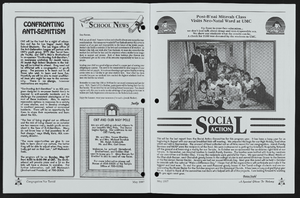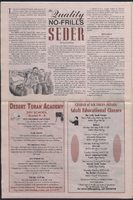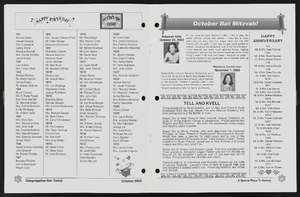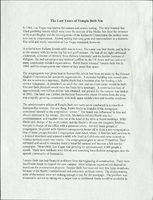Search the Special Collections and Archives Portal
Search Results

Transcript of interview with Laura & Don Garvin by Michael Martocci, March 3, 1979
Date
Archival Collection
Description
On March 3, 1979, Michael Martocci interviewed Laura (born in California) and Don Garvin (born in Goldfield, Nevada) about their lives in Las Vegas, Nevada. The two provide details on their family background, the first sources of water in Las Vegas, and the early city limits. They also describe their early occupations, religion, gambling, the Mormon Fort, and the effects of the Great Depression. The interview concludes with a brief discussion on the development of the Las Vegas Strip and recreational activities.
Text

Junior Fonotisatele oral history interview: transcript
Date
Archival Collection
Description
Oral history interview with Junior Fonotisatele conducted by Cecilia Winchell and Stefani Evans on November 10, 2021 for Reflections: The Las Vegas Asian American and Pacific Islander Oral History Project. Junior discusses his Samoan background and the importance of strong family values. He talks about his early years in Utah and California before moving to Las Vegas where he attended and graduated from the University of Nevada, Las Vegas. Junior shares his employment history as a bodyguard for Floyd Mayweather, an entrepreneur of a clothing brand, and an investor into a range of ventures including security, solar energy, and mental health. He concludes with a discussion of Samoan cultural celebrations, his religion, and the significance of his tattoos.
Text
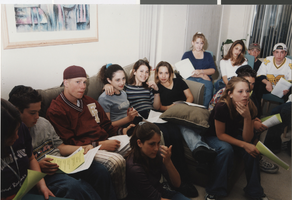
Photographs and clippings from Temple Beth Sholom scrapbook, 1970s-1990s
Date
Archival Collection
Description
Photographs and correspondence document the history of Temple Beth Sholom, including the ground breaking and construction of the campus in Summerlin. Also included in this set of images are photographs of Rita Deanin Abbey fabricating the Wall of Creation installation for the Temple on Oakey Boulevard in the 1970s.
Image
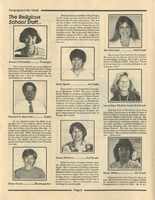
Newsletter from Congregation Ner Tamid, October 1991
Date
Archival Collection
Description
Newsletter from Congregation Ner Tamid, October 1991
Text

